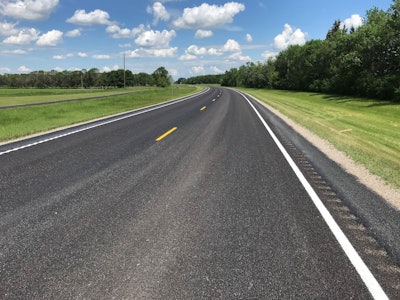
The federal FAST Act, which funds surface transportation projects, is set to expire at the end of September.
An $828 million shortfall is predicted by the end of September 2021 for the Highway Trust Fund’s highway account.
And state departments of transportation are expected to lose $37 billion in revenue through fiscal year 2024.
Meanwhile, Congress is coming up on an October 1 deadline to prevent a government shutdown and is in a stalemate on providing additional economic relief during the pandemic.
These looming issues are leading transportation infrastructure advocates to call for immediate action from Congress and the president to ensure funding continues to flow for road and bridge construction. A coalition of the American Association of State Highway and Transportation Officials, the American Road and Transportation Builders Association, Associated General Contractors of America, and the U.S. Chamber of Commerce has sent a letter to congressional leaders calling for “three critical steps.”
Those steps are as follows:
- Extend FAST Act another year to enable construction projects for 2021 to go forward.
- Provide $37 billion in emergency federal funding for state DOTs to offset lost revenue due to the pandemic.
- Address the Highway Trust Fund shortfall with at least a one-year extension.
The Congressional Budget Office had forecast in January that the Highway Trust Fund’s highway account, which funds highway construction and safety projects, would be exhausted in 2022. But lower than expected receipts from excise taxes due to the pandemic and higher spending than predicted for 2020 has led the CBO to forecast a 2021 shortfall. The fund’s transit account, which funds mass transit projects, is also expected to have a $540 million shortfall in 2021, according to AASHTO.
The HTF is primarily funded by excise taxes on gas and diesel fuel that are set to expire in 2022, according to the CBO report. The CBO reports that between 2008 and 2019, the fund has spent $127 billion more than it has taken in. Congress has transferred in $144 billion over those years from general funds so state and local governments won’t have to delay payments on transportation projects.
The problem with annual reauthorizations, say industry advocates, is that they make it difficult to plan future transportation projects, which often require years of planning, permitting and design before construction can begin. And construction often extends into several fiscal years. But as Congress remains deadlocked on extending unemployment benefits and other economic relief during the pandemic, hopes for a long-term infrastructure plan have faded.
So far, there has been little movement on transportation funding in the Senate. A $287 billion transportation bill with bipartisan support has been stuck in committee for over a year. This summer, the House passed a $494 billion transportation bill that appears to be dead on arrival in the Senate.













